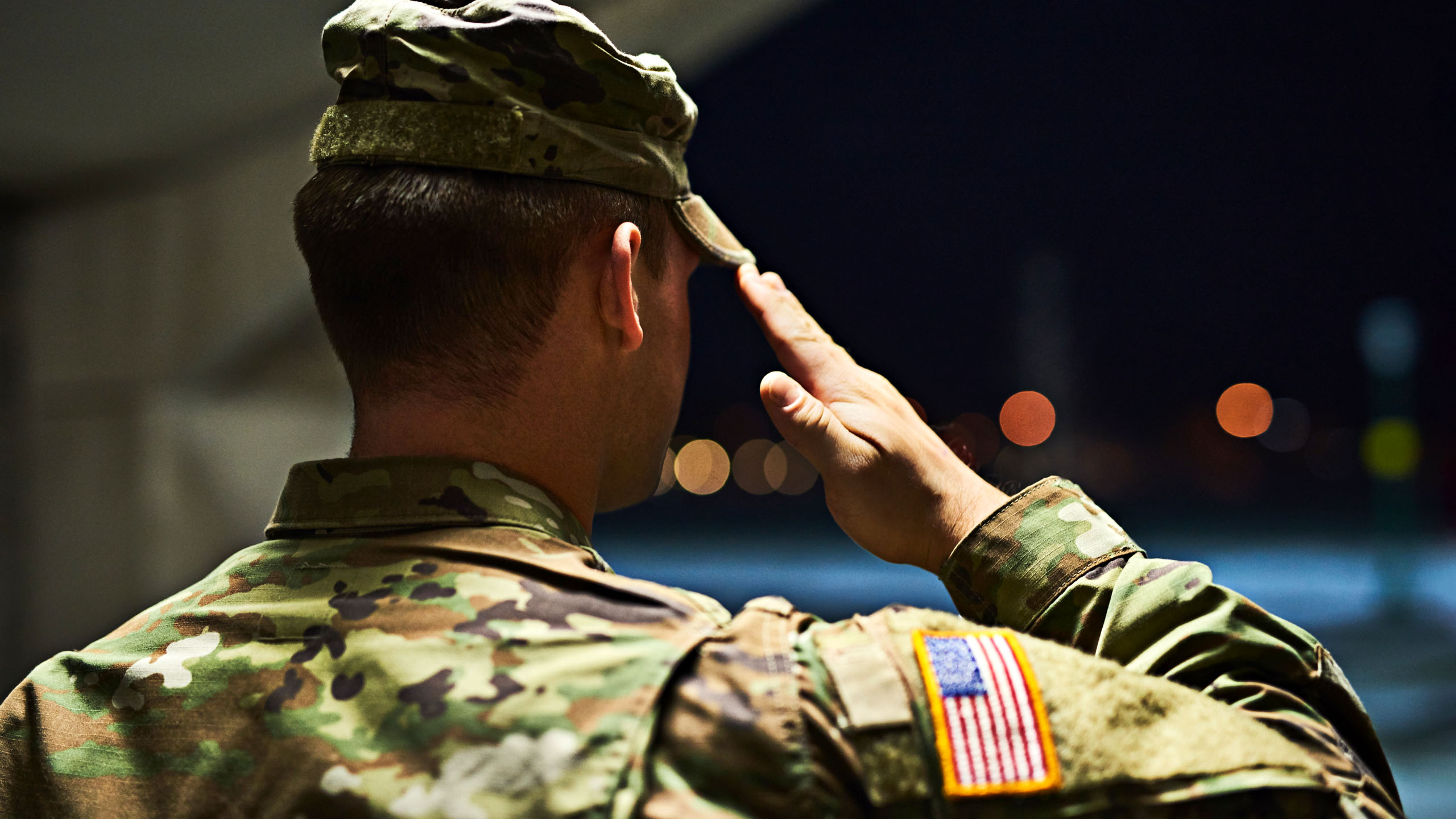The United States and United Kingdom are lifting outdated policies restricting military service for people living with HIV.
The U.K.’s Ministry of Defence announced on June 21 that HIV-positive individuals will be permitted to enlist in the British Army if they are currently undetectable—meaning that their viral load is low enough to make the virus untransmittable. Although the ban on enlistment among people with HIV dates back to 1985, a time in which little was known about HIV, today it’s a treatable condition that can be managed with antiretroviral medications.
According to the press release, service members living with HIV will now be deemed “fully fit” for service—including being eligible for deployment.
In a statement, the U.K.’s Chief of Defence People, Lieutenant General James Swift, said the policy updates are a “recognition of the superb medical advancements that have been made” regarding the treatment and prevention of HIV/AIDS. Swift, who in his role manages policies affecting all personnel in the British Army, Royal Navy and Royal Air Force, also lauded “the decisive work by those that helped to bring about these changes.”
“We will continue to ensure that all our people have the best experience possible, where their health and well-being is prioritized, and they can serve with pride and feel valued and supported in a modern armed forces.”
HIV-positive service members lauded the U.K.’s announcement.
“From today I can be considered fully fit by the Royal Navy for the first time since I told them about my HIV diagnosis,” said Lieutenant Commander Oli Brown in a press release. “Being labelled as limited deployable made me question myself and doubt my capability—it took a toll on my mental health. The biggest thing about this change is knowing that no one else will feel how I did.”
Brown, who serves in the Royal Navy, added that the policy updates send a message that “people living with HIV are not limited in any way.”
“I take one tablet a day which makes my HIV undetectable and that I can’t pass it on,” he said. “There is no reason why I, or anyone else, should be restricted in the armed forces and today’s change reflects that reality.”
Advocates noted, however, that there are some additional barriers left to clear to ensure all people can serve without discrimination. Currently, the British Army does not allow air traffic controllers and military air crew to take HIV-prevention medications like pre-exposure prophylaxis (PrEP), claiming there is a “logistical burden” to ensuring they maintain access to medications.
Historically, the U.K. military does not allow individuals taking regular medications to enlist, although exceptions include service members who use contraceptives like birth control. Last November, the British Army announced that people taking PrEP would be able to enlist for the first time.
People living with HIV were already banned from being discharged from the British Army solely due to their status prior to the recent rule changes.
The U.S. has joined the U.K. in making it easier for HIV-positive troops to serve openly in the military, but its changes are far more modest in scope. While people living with HIV will be banned from enlistment—even those whose viral loads are currently suppressed—military members will no longer be subjected to an automatic discharge if they contract HIV during their term of service.
HIV-positive troops will also be able to deploy to combat zones for the first time, and will no longer be barred from military advancement.
“The light at the end of the tunnel is shining a little brighter today for people living with HIV who want to serve.”
In a June 6 memo, Secretary of Defense Lloyd Austin said the changes were made “in view of significant advances in the diagnosis, treatment and prevention” of HIV. He added that “individuals who have been identified as HIV-positive, are asymptomatic and who have a clinically confirmed undetectable viral load will have no restrictions applied to their ability to commission while a Service member solely on the basis of their HIV-positive status.”
Any individual diagnosed with HIV during their enlistment “will be referred for appropriate treatment and a medical evaluation of fitness for continued service,” Austin added in the statement.
LGBTQ2S+ advocacy groups celebrated the news, with Lambda Legal CEO Kevin Jennings calling the new policy “a significant step forward.”
“The light at the end of the tunnel is shining a little brighter today for people living with HIV who want to serve in the United States Armed Forces,” Jennings said in a press release earlier this month. “We are delighted that the Biden administration has made clear that it will no longer defend these discriminatory policies in our courts and that the DoD has made long-overdue changes to regulations affecting service members living with HIV.”
Lambda Legal senior attorney Kara Ingelhart added that the restrictions on HIV service members posed a “serious equity issue,” as people of colour are disproportionately likely to be living with HIV. She said the previous guidelines had a “significant impact on communities that already face many other systemic barriers to accessing the full range of opportunity in America.”
The Pentagon’s announcement follows an April ruling from the U.S. District Court for the Eastern District of Virginia declaring that the military’s policy of “separating or discharging” people with HIV is “at odds with current medical evidence concerning HIV treatment and transmission.”
“[It] is a policy for which there is no rational basis,” Judge Leonie Brinkema wrote in the decision.


 Why you can trust Xtra
Why you can trust Xtra


